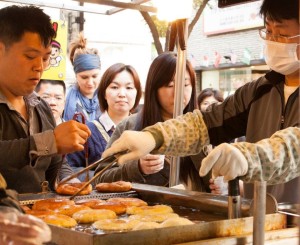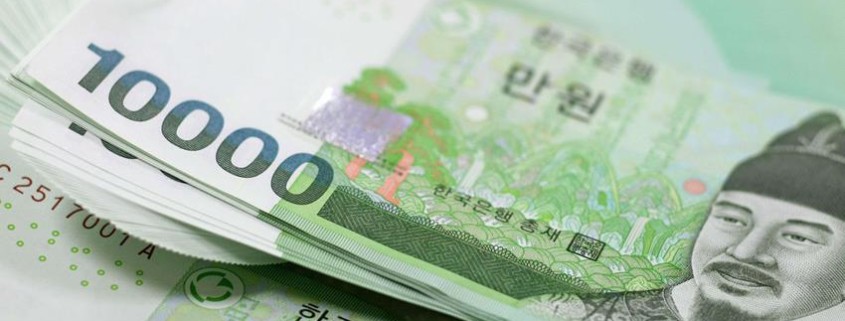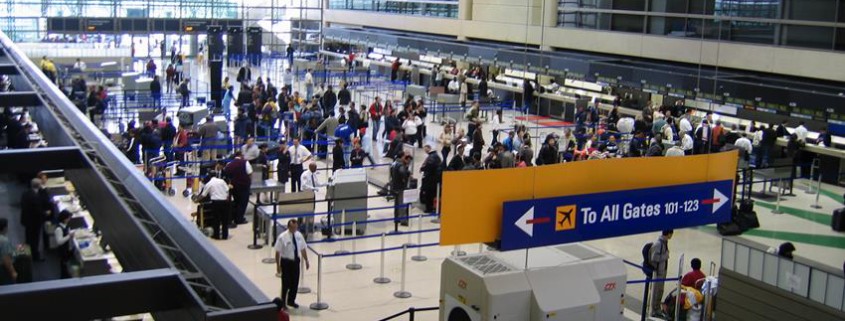Posts
5 Types of people who move abroad
/0 Comments/in Expat Life /by Ali Porter5 Types of people who move abroad
Over the years, we’ve seen a lot of expats moving to South Korea and China, and by working with them, amongst others teachers, co-workers, acquaintances and friends, we’ve boiled it down to 5 types of people who generally move abroad.
1.The Culture Freak / The Wanna-bee
Kpop, hangul, Korean movies and slang… He’ll be able to tell you about it all. He’s the one who started studying Korean, before he even knew whether he would ever set foot on the Korea Peninsula , and he has seen every YouTube video about it.
Why teach abroad:
If you have a passion for the country, its cultures and traditions, why would you not go? You’ve seen it all already on the web, so you know all the reasons why you need to go. What are you waiting for?
2. The Traveler
The guy with the list – Not your average To-Do list: This list includes everything that haven’t been mentioned by Trip Advisor and more. This is the guy who would love to see the world and is able to live out of a suitcase. It’s the person who has friends all over the world and enjoy making new connections and trying new things. It is possible that he already knows people in Korea, or that he is interested in traveling to South East Asia.
Why teach abroad
With Japan, Thailand, and China so close, who wouldn’t want to go? This is the ultimate place to teach at, and still be able to visit South East Asia on a budget. You can live the adventure you’ve always dreamed about, you’ll see a different part of the world and you’ll be able to expand your horizons, and fill that passport of yours.
3. The University student
This is the person who just finished college. Excess money is a foreign concept, and the amount of debt is too much to even mention. He does not have work experience in “The Real world”
Why teach abroad
Gaining international teaching experience will be an asset in your future career. This is a great way to set your foot in the door, and still get paid a pretty decent income. Korea is one of the higher paying Asian countries, and the cost of living is quite low. You’ll be able to save anything from $1 – $1000, depending on your spending habits. It is possible to save a lot, without living the lifestyle of a hermit.
4. The Opportunist
Gaining international experience – That’s the dream. He is interested in building an international community of contacts and to enhance his resume with skills and abilities.
Why teach abroad
To work for multinational companies, will create a good career prospective. You’ll be able to expand your skill set and the ability to adapt to different workplaces. Korea will ensure that you are exposed to being flexible, developing communication skills on a different level and being adaptable to circumstances. The world will become your Teacher.
5. The Runaway
He is the one who is unhappy with his life at home. He feels stagnant and might be in a dead-end job. There’s a lack of opportunities at home; It’s a location burnout.
Why teach abroad
By teaching abroad, you’ll be able to create a life for yourself in another country. You don’t need to carry your past with you; you can recreate yourself. Be whoever you’ve always wanted to be… That doesn’t mean that you’re allowed to change your name on your passport though…
You might find better career opportunities, than back home, but ultimately, going abroad makes you more open minded and this might change your perspective of home in a year of two.
Most Popular posts of 2014
/0 Comments/in Everything Else /by Ali PorterThe Most Popular posts of 2014: It’s always hard to predict what the reader wants to know. These posts hit a common nerve and you were interested in reading this. Here are the Top 10 most popular posts of 2014 (so far), and we don’t plan to stop posting more of these any time soon… Did you miss any of them? Which one was your favorite?
10. Arriving in Korea
You’ve waited weeks for this moment, perhaps even months. You have landed at Incheon Airport, and you’ve been told how to get out of the airport (take a bus into Seoul, look for someone holding your name when you come out of baggage claim, etc). But you probably have no idea what comes next, right?
Here’s how to make your first weeks after arriving in Korea a little less stressful.
9. The ultimate checklist
It’s crunch time, and you’re preparing to actually GO ABROAD! It probably feels like everything is happening way too fast… and truth be told, it probably is. With that in mind, here’s the ultimate checklist to help ensure that you have everything covered…
8. Weird facts about North Korea
According to Kim Jong-Il’s biography, he was born under a double rainbow as a new star appeared. He started to walk at 3 weeks old, and claimed to be able to control the weather by his moods. What are some other weird facts you’ve heard about North Korea?
7. Weird places in Korea
Yes, we know about all the must-do’s in Korea.. But how about the weird, the different, the unusual places in Korea…?
6. Useful websites in Korea
Are you new to Korea? Have you been here for a few years? Either way, we’ve found these useful websites in Korea to be super helpful in planning nights out, weekends away, or exotic trips out of the country. We hope this list will assist you as you create memories overseas!
5. What I wish I knew before coming to Korea
What I knew of the world changed during my first few days, weeks, and months in Korea. I did my research, but there were a few things that I missed. This is what I wish I knew before arriving in Korea.
4. Living cost in Korea
So you’re coming to Korea, and you’ll be earning around 2.0 – 2.1m KRW (average starting salary for a 1st year teacher). You’re probably wondering what your living costs in South Korea will look like, right? How much can you save? How much can you send home to pay off student loans? How much will you have in your pocket to spend on traveling?
3. Returning home after being abroad
Reverse culture shock, according to Investopia:
“The shock suffered by some people when they return home after a number of years overseas. This can result in unexpected difficulty in readjusting to the culture and values of the home country, now that the previously familiar has become unfamiliar.”
You just returned from a place that is very different. The language, the customs, the way of living… and now you’re “home.” But if it’s “home,” then how come I feel so… out of place?
2. Learn to read Korean
Did you know that you could Learn to read Korean in less than an hour?! This picture is famous for being a good way to learn to read Korean, in just 15 minutes… (Took some of us closer to an hour), but imagine spending 1 hour – and being able to save so much more time in the future, by being able to read!
And the most popular post of 2014:
1. What not to say to an expat
I’ve been gone for a while, and I know you don’t fully understand the ways that I’ve changed. So, to every expat-friend-and-family-member-ever. Here’s what NOT to say to an expat.
What topic will be more popular then this one? Let us know, and we might just write about that next!
Going Abroad? The Ultimate Checklist
/1 Comment/in Before You Leave /by Ali PorterIt’s crunch time, and you’re preparing to actually GO ABROAD! It probably feels like everything is happening way too fast… and truth be told, it probably is. With that in mind, here’s the ultimate checklist to help ensure that you have everything covered.
Adventure Teaching Presents: The Ultimate Checklist
1. Documents
Some important items you don’t want to forget:
- Passport (duh)
- Copies of your passport – bring with you when you travel, too, in case you lose your actual passport
- A photocopy of your immunization record – if you travel to an area where certain immunizations are recommended/required, this is helpful to have on hand
- Contact info for your friends/family – once you get a cell phone set up, you’ll want all of those phone numbers!
2. What to pack
How do you pack a year’s worth of stuff, when your airplane allowance is 23kg / 50lb?
- A must: Photos and other small souvenirs from home, and a few of your favorite snacks. DVDs and TV Shows.
- Items connected to your hobbies. Small instruments. Basketball shoes. Knitting needles. Your Xbox or other gaming console.
- Extra passport photos – you’ll need 4-8 more after you arrive. They’re handy to have for traveling, too, as some countries will need photos for tourist visas.
- Gifts for your co-workers – not mandatory or expected of you, but a nice gesture. A small trinket or souvenior from your home town/state/province/country.
- For everything else: What to pack
3. What you don’t need to pack
- Bedding: a comforter, a pillow, a sheet
- A mattress pad
- Full size bath towels
- Water filter
- A cleaning kit
- A transformer: are you from the States or Canada? Check the voltage of your electronics. Make sure that they will be able to handle 220V. Double check specific appliances, such as your hair straightener, blow dryer, electric toothbrush and gaming systems. For these appliances, you will most likely need a transformer.
4. Money
- Find out what you will need to be able to wire money back home. Bring proof of your bank account. You’ll be able to link your Korean account with your account at home.
- Make someone at home your power of attorney, so they can have access to your accounts on your behalf.
- Understand the currency conversion for USD / ZAR / GBP…. to Korean Won
- Bring enough money to last you until your first paycheck (which you’ll receive about a month after you arrive)
5. Communication
- Consider buying or renting a phone in Korea
- Speak with your current carrier about getting your phone unlocked so that it works in Korea (and then set up a phone plan with a Korean carrier after you arrive)
Hopefully some of these tips are helpful. Don’t miss checking out what we wish we had realized before going to Korea.
Did we miss anything? Comment below!
Gift-giving in Korea
/0 Comments/in Expat Life /by Ali PorterGift-giving in Korea is a strong tradition in Korean culture. If you ever invite Korean friends to your home, you’ll notice that they will always bring you some fruit, dessert, a drink, or sometimes all of the above! Of course, gift giving on special days (holidays, birthdays) is a must. But what about giving a gift to your director/principal and Korean coworkers when you arrive?
We recommend something small from your home country. A souvenir, something symbolic of your home town, local region, or just your country in general (maple syrup from Canada, for example). Here are some gift ideas you can consider for your boss, head teacher, and Korean coworkers:
The Boss (director/principal):
- A bottle of wine or other fancy drink: something that can be used as decoration. The more expensive it looks, the better (it doesn’t have to actually be expensive)!
- A tin of fresh coffee: ground or unground will work. It’s surprisingly hard to find good stuff in Korea!
Your Head Teacher:
- A big jar of multivitamins: vitamins in Korea are not nearly as strong, and Koreans are very health conscious.
- A jar of delicious, fresh honey: as always, the more expensive something looks, the better.
Your co-teacher(s):
- Because you are probably not sure how many co-teachers you will have, the best option is to get something that can be shared by multiple people. Some candy, a box of chocolates, a selection of nice tea to put in the teachers lounge, etc.
Of course your friends and family members will be eager to receive little trinkets from you when you come back home a year later. Here are some ideas:

Personalized Stamp
A Personalized Stamp
- You can get their name engraved on it…. in Korean! Or, you could be sneaky and write something totally different. They’ll never know!
A Magnet
- Cliché, we know, but you can find some pretty hilarious ones!
An “Engrish” T-shirt
- Engrish refers to grammatically incorrect variations of English, often found in East Asian countries. An Engrish t-shirt would be the ultimate gift and you won’t have trouble finding them. Anyone who has spent time in East Asia will know that the shirts you find here are shirts you cannot find anywhere else.

Animal hats!
Animal Hats
- Keep an eye out for the ones that have long “paws” that hang down to your waist. Hilarious!
Metal Chopsticks
- Korea is the only country in Asia that eats with stainless steel chopsticks. Korean chopsticks are also flat, like the handle of a western fork or spoon, rather than round or square like other Asian countries.
Cosmetics
- Interesting fact for you: the most popular item tourists want to purchase in Korea is beauty products. Some of the popular brands include Skinfood, Etude House, The Faceshop, Missha, Innisfree and Nature Republic.
Phone Covers
- Cell phone cases are a dime a dozen in Korea, and they come in the strangest shapes and sizes. You’ll struggle to find such a variety elsewhere! You’ll find them everywhere- vendors on street corners, markets in the subway station, or for a larger variety, you can visit the popular shopping districts in Dongdaemun, Myeongdong and Itaewon.
Soju
- Interesting fact #2: Soju is the top selling alcohol brand in the world! Who wouldn’t love to have that checked off their list. Maybe stock up on some yourself, as the price of Soju at home will be at least triple the cost of what you can get it for in Korea.

Korean socks!
Socks
- Whether you’re looking for PSY’s face, flags from different countries, or just plain ol’ cartoon characters, there’s something for everyone!
For those who have been in Korea for awhile — what would you add to the list?
Differences between expats and travelers
/1 Comment/in Expat Life /by Ali PorterYou spot them both in the street. It’s Saturday.
The expat is walking with confidence; you wouldn’t realize that he* is actually lost. He is walking with a smile on his face and along the way, he has picked up some little cultural quirks. He’s not even aware of the fact that he’s doing it. He asks for help, using mostly body language and waits at the bus stop, for the next bus to arrive. He’ll find his way.
A girl* is walking past. She is trying to make sense of her map. I’m almost certain that it’s the wrong way around, but hey, I’m just observing. Her schedule is tight: She’s got places to go and people to see. Everything has been planned to the minute, and she’s getting frustrated. She signals for a taxi to stop, because he’ll be able to get her to the address, written on the back of one of her many tourist flyers…She’s called, a traveler.
There are a lot of differences between expats and travelers.
1. Going with it vs Planning
He has a broad idea of things to do, but he will take lemons and make lemonade. He’s got a lot of time (even though a lot of expats don’t use it as well as they should), and instead of having a list from TripAdvisor, he keeps his ears open and listens to recommendations from the people around him.
A traveler has a limited amount of time. Every second counts, and therefore, it’s easier to do research beforehand and follow the plan
2. More Adventurous (Risk takers) vs Comfort zone
The expat likes to take risks. After all, he left his home country, everything he knew, for the unknown. He gave up the privilege to spend Christmas at home as well as the luxury of understanding people. He took a step, and had no idea where it would lead to. It takes courage not to run back home at the first setback.
3. Friendly, more adaptable to culture vs their own way of doing things
The expat is a lot more flexible and adaptable than the traveler. The expat is aware of the fact that he is the visitor in another country, and he has to adapt to their way of doing things.
The traveler is used to her routine, so she sees no reason why she needs to change for other people. She’s frustrated pretty quickly, because she expects things to go according to the way it is in her home country. She’s not too fond of changes.
4. Less snobs, your group of friends is as dynamic as ever
As the year goes by, the expat makes friends. Lots of them. One as dynamic as the other. The main thing they have in common, is the fact that they:
- Moved abroad
- Get homesick
- Like to explore
It doesn’t matter as much where people are from or what they are doing here. It’s more about the fact that you are her now, and that’s all that matters
Travelers can come across as being a bit more pretentious. They choose who to hang out with, with a bit more care…….
5. Expats know they don’t know, Travelers “know”
The expat is the one who will tell you all about the city that you are about to visit. He’ll refer to the fact that there’s just way too much to do, and that you’ll never have enough time to see it all.
The traveler will tell you how she got everything done in a few days… she was actually bored by the end of her trip. They’ll tell you “everything you need to know”
You don’t know what you don’t know, Ms. Traveler…
6. Think about life vs not to
The expat is the one who is moving to a different country, a new life. He has time to ponder about life, to think about the things that matter and the things that don’t…
It’s very different that being on vacation. You see the world around it, you see the beauty in it, and on impulse, you might decide that you want to move there too… Know that traveling through a country and living in it, would be 2 different experiences. Know that you’ll have a job, do dishes and pay bills, just as you did back home. This time, you might just find it a bit more difficult to communicate to those around you.
This is a generalization to the extreme of the differences between expats and travelers. You might know some travelers who are more adventurous than some of your expat friends. True. Expats just tend to be, according to the stereotype.
* The fact that the guy is an expat, and the girl is the traveler, has nothing to do with genders, but it is merely to make it easier to distinguish between the two people.
What NOT to Say to an Expat
/7 Comments/in Expat Life /by Ali PorterI’ve been gone for a while, and I know you don’t fully understand the ways that I’ve changed. So, to every expat-friend-and-family-member-ever:
Here’s what not to say to an expat.
Before moving abroad
 1. You’re going to Korea? No way! My cousin’s friend’s uncle’s niece is also teaching there. What a small world.
1. You’re going to Korea? No way! My cousin’s friend’s uncle’s niece is also teaching there. What a small world.
Yes, everyone knows someone who is in Korea, or who has been here,or who will move here. It’s just the way it is.
2. I’ll come visit you
Right. And unicorns exist. Say it when you mean it. We’ll be really disappointed if you don’t.
3. You’ll become so rich.
I’m flying to another country, and I’m working 5 days a week. Just as you are. I still have to eat and sleep and pay the bills.
4. You’re so lucky!
What’s stopping you from joining me?!
During your stay
1. When are you coming home?
One day. Maybe. For now, I consider this home. When are you moving here?
2. When will you get a real job?
I go to work every morning, I work an 8-9 hour day, I leave when it’s done, and I get paid for it. What would you consider as a real job?

Mmmm… Comfort Foods.
3. You must really miss (insert food)?
And you just had to remind me.
4. Do you know (insert name) from (insert country) ? He is also there.
Yes, we are a group of 10 foreigners in the whole country, and there are big flashing arrows over our apartments so we can conveniently find each other.
5. Your life must be one big adventure.
I have a job. I have bills to pay. I miss out on Christmas at home. I would have liked proper Mexican food. Yes, I chose this, but it is what I make of it.
After moving back home

… silence….
1. You’ve changed… (awkward stare)
Is that a bad thing? It happened over time. My world got bigger, and I’ve been challenged in ways I never would have at home.
2. How was the trip?
Such a hard question. It wasn’t really a “trip”… you won’t really get it…
3. So, did you eat insects and stuff?
Breakfast, lunch, and dinner. Which explains my trimmed physique. Naturally.
4. How would you say (insert foreign word) in (insert language)
Yes. I’m fluent. So glad you brought that up.
So please, friends and family. Be patient with us. Support us. Give us time to rediscover how to do life in the West. And above all, remember to start preparing for when you return home from living abroad.
Any extras you can think of? Let us know below!
Returning home after being abroad
/1 Comment/in Everything Else /by Ali PorterReverse culture shock, according to Investopia:
“The shock suffered by some people when they return home after a number of years overseas. This can result in unexpected difficulty in readjusting to the culture and values of the home country, now that the previously familiar has become unfamiliar.”

What are you looking at…
You just returned from a place that is very different. The language, the customs, the way of living… and now you’re “home.” But if it’s “home,” then how come I feel so… out of place?
Reverse culture shock affects everyone differently, but there are different transition stages that might help shed some light on what you’re experiencing:
Phase 1
In the beginning, being back home is an adventure. You are finally able to eat all those foods you have been craving. You can speak the same language as everyone, read signs, and best of all – you can catch up with all your friends.
Phase 2
Unfortunately, the “honeymoon” phase does not last forever. It’s great to be back, but you slowly realize that people’s lives went on without you. It seems like the world changed, but it’s actually you who changed through your experience. You start to see that people expect you to be the same person as you were before. After all, it’s only been a year (or two), right?
Not only do you have to juggle people’s expectations, but you find yourself becoming… bored. Remember how you used to walk outside, and there was always something new to look at? Bus rides and subway rides were exciting?Even grocery shopping was fun? It starts to dawn on you that those simple adventures that are a part of everyday life overseas do not take place at home.
You share your experiences with people around you, yet they reply with snarky comments about how you’re bragging. Showing off. “It was just a year or two of your life,” and people don’t seem to be interested. All the while, you keep thinking – “Exactly! It was an ENTIRE YEAR! So much happened!” Ibn Battuta once said: “Traveling: it leaves you speechless, then turns you into a storyteller.” It doesn’t help if no one is there to listen. It helps to find others who’ve lived overseas. Joining Meetups in your area can be a great place to start.
Just as traveling became a part of your life, make sure you remember that having a family, for example, became part of your friends’ lives. You want them to listen to your stories, so return the favor and listen to their stories, too.
Phase 3
This is up to you. Returning home after being abroad won’t be the easiest thing to do, so find people with similar interests, go explore your hometown, and try out those traditional Korean restaurants in your area… they might just surprise you! And above all, find a jimjilbang. Trust us. A good jimjilbang is therapeutic on a bad day.
Korean Bank account
/0 Comments/in Everything Else /by Ali PorterHow to open a Korean Bank account
One of the first things to do in Korea, is opening a bank account. With so many banks to choose from, it can be quite a mission to decide which bank to go to. It is common for schools to provide assistance or recommendations to banks nearby the school or in the area. Here’s a little bit of information about how to open a bank account in Korea
Process
If you are on a Student or Work visa, it’s pretty simple to open a bank account. You might be more restricted if you are on a Tourist Visa.
To be able to open a bank account, you will need the following:
– Passport
– ARC (Alien Registration Card): Even if you don’t have your ARC yet, you will still be able to open a bank account, but you’ll just be a bit more limited for the first month. You might be able to get a bankbook, and only receive the card once you show your ARC, but you’ll be able to get by without too much trouble
– They will provide you with a form to fill in (Make sure that you have your Korean address with you, and check that your name is written, as per your Passport)
You should be able to receive your Bank card and Pass Book (Bank book) within a few minutes.
Different Banks
KB (Kookmin)
This is the most popular bank, as you will find numerous branches all over Korea.
NH (Nonghyup)
The phone staff is knowledgeable and they provide good service, but doing online banking is a headache. NH is quite popular outside of Seoul.
Shinhan
They pride themselves as a Strong and Healthy Bank that could withstand any crisis. They have branches and ATM’s everywhere
Woori
They do not have the best service, as they use translators instead of people, qualified in the banking business, to answer questions. Their website is however compatible with all major browsers, unlike some of the other banks
Hana
It is one of the larger banks in Korea with branches in U.S.A., Japan and China.
KEB (Korea Exchange Bank)
They provide teachers great service in English and their site is very user-friendly. It’s is the only one that offers foreigners-only bank accounts that record all transactions in English.
Overseas card
Most international cards should work in Korea. It’s possible to withdraw money directly from most of the ATM’s. Make sure that you have one of the following cards though:
– Maestro
– MasterCard
– Cirrus
International transactions
Overseas Remittances
To send money overseas, it is necessary to designate a specific bank as the one you will use for these transactions. It is advised to bring proof of your bank account bank home, to make transfers in between a lot easier.
Banking hours:
Generally between 9am- 4pm on weekdays, but might vary from one bank to another. Some are open over weekends.
Arriving in Korea: 5 things you should know!
/2 Comments/in Expat Life /by Ali PorterYou’ve waited weeks for this moment, perhaps even months. You have landed at Incheon Airport, and you’ve been told how to get out of the airport (take a bus into Seoul, look for someone holding your name when you come out of baggage claim, etc). But you probably have no idea what comes next, right?
Here’s how to make your first weeks after arriving in Korea a little less stressful:
1. Internet
Once you arrive, you should be able to find the free WiFi at Incheon Airport. While you’re waiting for baggage, standing in immigration lines, or waiting for your bus to arrive, you can use your laptop or phone to connect to the internet.
If your school is putting you up in a hotel for the first few days, you’ll probably have internet access. If you’re going straight to your apartment, it all depends on whether the teacher before you has cancelled or kept their old internet contract.
Solution: Find a coffee shop in the area – they are plentiful, and most have free WiFi. You could also look for PC-Bongs – computer rooms.
2. Your Apartment
Do you have any expectations about what your apartment might or should be like? Some advice – don’t have any. It will probably be dirty. You’ll likely spend your first 2 days deep cleaning every single surface. You’ll probably have to throw out a bunch of random stuff that was left by the teacher before you.
Trust us – it happens to everyone. Just buckle down, clean it all up, and then start to settle in. And hopefully the experience will motivate you to leave the apartment in a better condition when you head home!
Apartments in Korea come in different shapes and sizes, and just remember to keep an open mind. After all, this will be your home for at least the next year!
3. Language
You’ll learn how to use hand signals you never knew existed… you’ll probably make up a few, too!
No: Cross your arms in the form of an ‘X’
Yes: Show the Okay sign
Be cute: Show the peace sign, next to your face
Learn some basic Korean – a little bit goes a long way! Then, learn how to Read Korean – if you have someone helping you, it shouldn’t take you more than a few hours! You won’t have any idea what 99% of the signs actually mean, but hey, you’ll be able to read them!
4. Grocery Shopping
There might be a Home Plus, Lotte Mart or E-mart close to you. If not, you’ll be able to get the basics from corner stores like CU, IGA, 7-Eleven or GS25. You should also have a bakery, like Paris Baguette, in the area.
You’ll slowly get to know which products you can find (and which are impossible to track down) in Korea. Until then, make friends with people who have been in Korea longer than you!
5. Dealing with colleagues
We’ve created this section, to get you prepared for the working culture of Korea, and to give you an insight in what might be expected of you. This will change your attitude in the workplace and definitely score you some brownie points in the office!
Eager to know more? We’ve spent a lot of time developing Adventure Teaching’s Guide to South Korea. It’s packed full of information that will help you know how to navigate your first few days in Korea!
So, what did we miss? Do you have any stories to share about your arrival to Korea?
Let us know: email [email protected] or leave a comment on our Facebook page!
















